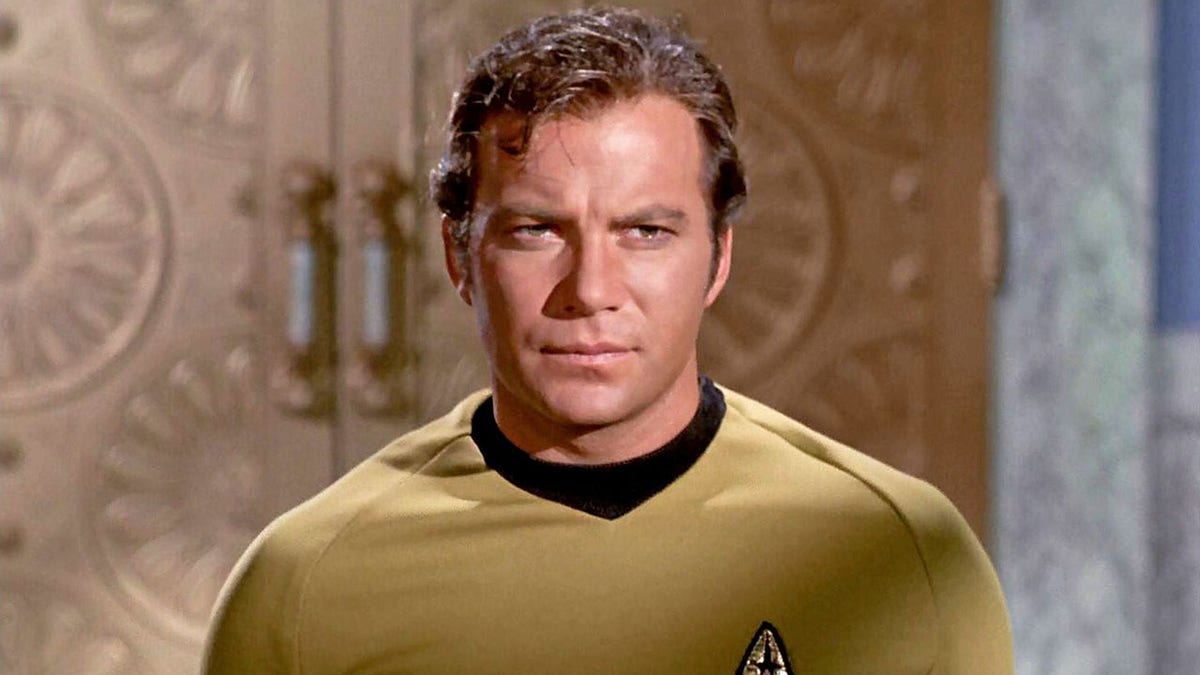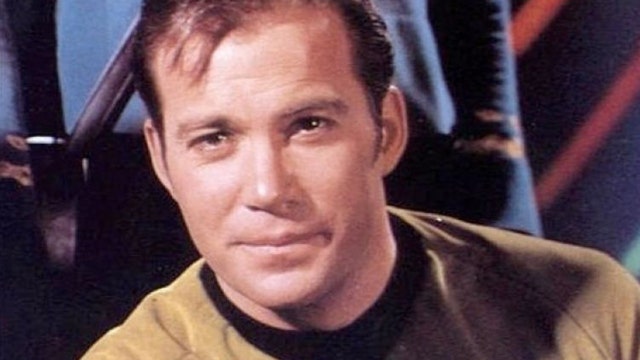'Star Trek' continues to live long and prosper
Science fiction franchise celebrates its 50th anniversary with a loyal fan base that continues to grow
There is no more quintessential American story universe than Star Trek.
Since its creation in 1966 the franchise has had myriad iterations on big screen and small, basically invented the sci-fi convention, and has charmed audiences across every generation. But in two recent episodes, writers crossed a line where no Star Trek has gone before. That is to say, they got directly involved in partisan politics.

LOS ANGELES - NOVEMBER 22: William Shatner as Captain James T. Kirk in the STAR TREK episode, "Plato's Stepchildren." Original air date, November 22, 1968. Season 3, episode 10. Image is a screen grab. (Photo by CBS via Getty Images)
The first blatant example of electioneering, on Star Trek Discovery, was a cameo by current and former Georgia gubernatorial candidate Stacey Abrams as none other than the President of Federation of Planets. The second was a weird plot twist in the pilot of new show, Strange New Worlds in which the 2020 capitol riot is depicted and blamed for starting a Second American Civil War and the destruction of the planet. To put it more succinctly, Orange man bad.
To be fair, since the original 1960s series Star Trek has always delved into cultural and societal issues. It has always been credited with diverse casts, with tackling issues like saving the whales (remember that?) and with reflecting American and global foreign policy.
All of that should live long and prosper, but these two recent incidents go a good deal farther. This isn’t issue advocacy, it's pure partisan politics.
This is part of a broader galaxy of problems as we saw recently with Disney, which owns Star Wars, going to battle with Florida Governor Rod DeSantis. The central confusion here is the difference between showing broad support for things like basic civil rights and openly advocating for one political party’s answers for securing them.
So, for example, almost everyone supports "voting rights" but that isn’t the same as supporting Stacey Abrams. Almost everyone condemns the Capitol riot and political violence, but that’s not the same and placing unique blame on one single event from one side of the spectrum.
Ultimately, the problem here is that this kind of political signaling is alienating for those fans who are not part of the Democrat Party political tribe. As a fan myself, it hasn’t made me turn off the shows, but it’s jarring and also breaks the narrative spell of fantasy and science fiction which is why people tune-in in the first place.
It feels very much like the writers and creators of the new line of Star Trek shows, which also includes "Picard," don’t think just writing a good TV show is important enough work. Like so much of corporate America they think they have to save the country and the planet while they do it. Leave the planet-saving for the fictional Starship Enterprise.
CLICK HERE TO GET THE OPINION NEWSLETTER
The irony is that all three new Star Trek live action shows are quite progressive in the diversity of their casting. And despite hysterical concerns about a backlash that never actually happens, everyone is on board as long as the story and the acting are good.
Artists can, always have, and should use their work to hold a mirror up to their culture and society, even to advocate for broad agenda items. What they shouldn’t do is beam the equivalent of a 30-second Democrat Party political ad into the middle of a space adventure.
CLICK HERE TO GET THE FOX NEWS APP
Perhaps what America lacks more than anything today is a shared set of strong stories that help explain our world. Even our entertainment is awash in bitter partisanship. It leaves Americans too few places to ponder their lives and communities outside the context of red versus blue.
Star Trek is one of a small handful of entertainment brands with the popularity, scope and reach to be that shared story. But to do so, its creators must choose that universality over scoring cheap, predictable, and partisan political points.













































